Why Isn't The Atlantic Ocean Blue
Did you know that the Pacific and Atlantic Oceans don't mix? It may sound surprising, but it's true! The concept of these two great bodies of water not completely blending together has fascinated scientists for centuries. Today, we'll explore the reasons behind this phenomenon and delve into the mesmerizing world of oceanography.
Pacific vs Atlantic: The Great Divide

When you think of oceans, the first names that pop into your head are likely the Pacific and Atlantic. These two vast bodies of water are undoubtedly the most well-known and influential on our planet. However, despite being connected at certain points, they have distinct characteristics that set them apart.
The Pacific Ocean, known as the largest and deepest ocean on Earth, spans an incredible area from the western coast of the Americas to the eastern coast of Asia. Its waters extend across approximately 63 million square miles, making up more than 30% of the Earth's total surface area.
On the other hand, the Atlantic Ocean is the second-largest ocean, stretching from the Arctic to the Southern Ocean. It covers about 41 million square miles, approximately a fifth of the Earth's surface. As you can see, both oceans hold significant importance for our planet's climate and ecosystem.
Why Don't They Mix?
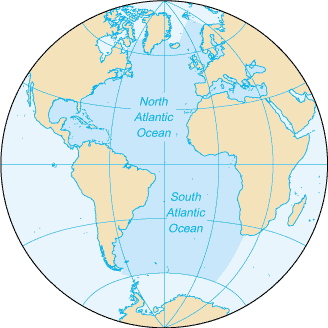
Now that we've established the vastness of these oceans, you might be wondering why their waters don't mix. To understand this phenomenon, we need to explore the factors that contribute to oceanic circulation and the unique characteristics of the Pacific and Atlantic.
Ocean currents play a vital role in the mixing process, and they are influenced by various factors, including wind, temperature, salinity, and the Earth's rotation. These currents circulate the water, distributing heat and nutrients throughout the ocean. However, the Pacific and Atlantic have different current systems, leading to distinct behaviors.
In the Pacific Ocean, you'll find the well-known North and South Equatorial Currents, which flow from east to west across the equator. These currents are responsible for the warm waters found in regions such as the Philippines, Indonesia, and Australia. Additionally, the Kuroshio Current, also known as the Japan Current, runs along the eastern coast of Japan, bringing warm water up from the tropics.
On the other hand, the Atlantic Ocean has the Gulf Stream, a powerful current that originates in the Gulf of Mexico and flows northeast towards Europe. This current is part of the North Atlantic Gyre, a circular rotation of water that helps form the famous North Atlantic Deep Water.
These different current systems, coupled with factors like temperature and salinity variations, create distinct water masses in the Pacific and Atlantic. Each ocean has its own "personality" when it comes to circulation patterns and physical properties.
The Colors of the Ocean
/GettyImages_482194715-56a1329e5f9b58b7d0bcf666.jpg)
Have you ever wondered why the ocean appears blue or even green from time to time? The color of the ocean is a result of various factors, including the presence of microscopic organisms, the reflection of sunlight, and the absorption and scattering of light by water molecules.
When sunlight reaches the ocean's surface, it contains all the colors of the rainbow, which combine to create white light. As the sunlight penetrates the water, it interacts with the molecules and particles suspended in it.
Water molecules absorb colors in the red part of the spectrum more efficiently, while scattering colors in the blue and green range. This selective absorption and scattering result in our perception of the ocean as blue or green, as these colors dominate after the sunlight has passed through a certain distance in the water.
But why does the color of the ocean vary? One of the primary factors is the presence of phytoplankton, microscopic plant-like organisms that live near the surface of the ocean. These tiny creatures contain pigments that can reflect and absorb light, influencing the ocean's color.
When phytoplankton populations are abundant, such as during algal blooms, the ocean can appear green due to the pigments in these organisms. The Gulf of Mexico, for example, experiences periodic harmful algal blooms that turn the water a vibrant green.
On the other hand, regions with limited phytoplankton, like parts of the Pacific, have crystal-clear blue waters that we often associate with tropical paradises. Additionally, the presence of other particles in the water, such as sediment or dissolved organic matter, can also affect the color.
The Mystery of the Separation

While we might understand the reasons behind the distinct currents and physical properties of the Pacific and Atlantic Oceans, the question of why they don't fully mix still remains. Scientists continue to investigate this phenomenon, and several theories have emerged to explain this seemingly invisible barrier separating the two oceans.
One theory revolves around the concept of density-driven circulation. Water density plays a crucial role in the ocean's dynamics, as denser water tends to sink while less dense water rises. This process, known as convection, influences the vertical mixing of water masses.
In the case of the Atlantic and Pacific Oceans, differences in salinity and temperature contribute to variations in water density. The North Atlantic, for instance, experiences strong evaporation, which increases its salinity. The combination of high salinity and low temperature makes the water denser, causing it to sink into the deeper layers of the ocean.
On the other hand, the Pacific Ocean has lower salinity and higher temperatures due to the inflow of freshwater from rivers like the Amazon and the Yangtze. This combination results in less dense water that is more resistant to sinking.
The difference in water density between the Atlantic and Pacific creates a barrier at the boundary where the two oceans meet, preventing them from fully mixing. This phenomenon is known as a halocline, which refers to a layer of water with varying salinity levels.
Another theory suggests that the Earth's rotation plays a role in the separation of these oceans. Known as the Coriolis effect, this phenomenon is responsible for the deflection of moving objects, including air and water currents, due to the rotation of the Earth.
As water moves across the ocean basins, the Coriolis effect causes it to veer to the right in the Northern Hemisphere and to the left in the Southern Hemisphere. This deflection influences the path of the currents and can contribute to the separation of the Pacific and Atlantic Oceans.
The Future of Our Oceans

While we've explored the peculiarities of the Pacific and Atlantic Oceans, let's pause to contemplate what the future might hold for these magnificent bodies of water. Scientists predict that the Atlantic Ocean, as we know it today, might cease to exist in approximately 200 million years.
This forecast is based on the continuous process of plate tectonics, which drives the movement of the Earth's lithosphere. Over millions of years, the seafloor in the Atlantic Ocean is slowly spreading apart, creating a divergence at the Mid-Atlantic Ridge. As this spreading occurs, it is believed that a new ocean basin will form, eventually replacing the Atlantic.
However, it's important to note that this transformation will take an extremely long time on a geological scale. Our planet's oceans have been evolving and changing throughout Earth's history, and they will continue to do so for millions of years to come.
Unveiling the Intricacies of the Oceans
The Pacific and Atlantic Oceans may not fully mix, but their unique attributes contribute to the diverse tapestry of our planet's water bodies. Through the ongoing efforts of scientists and researchers in the field of oceanography, we are gradually uncovering the intricacies of these vast and enigmatic expanses.
From the mesmerizing currents that shape ocean circulation to the breathtaking colors that captivate our senses, the oceans hold an unparalleled beauty that is waiting to be explored. As we continue to build our understanding of these natural wonders, let us marvel at the mysteries they present and take action to protect them for future generations to enjoy.
If you are searching about Blue Ocean Atlantic - YouTube you've visit to the right place. We have 25 Pics about Blue Ocean Atlantic - YouTube like Why is the Ocean Blue? - American Oceans, Why the Atlantic Ocean is getting wider - Owl Connected and also Blue Ocean Atlantic - YouTube. Read more:
Blue Ocean Atlantic - YouTube
 www.youtube.com
www.youtube.com Takeaway oceans americanoceans. One blue ocean … connects us all. Why is the ocean blue and sometimes green?
One Blue Ocean … Connects Us All
 oneblueocean.org
oneblueocean.org Cia world fact book, 2004/atlantic ocean. Why the atlantic ocean is getting wider. Takeaway oceans americanoceans
Why Is The Ocean Blue?
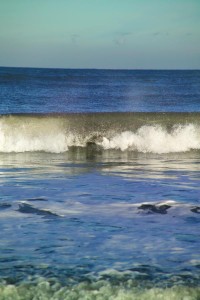 beachchairscientist.com
beachchairscientist.com Why is the ocean blue?. Video: why the atlantic and pacific oceans don't mix. Blue ocean atlantic
(EN) - Why Is The Ocean Blue? - YouTube
 www.youtube.com
www.youtube.com Atlantic ocean to disappear in 200 million years? -- science. Cia world fact book, 2004/atlantic ocean. Atlantic and pacific ocean do not mix
Why The Atlantic Ocean Is Getting Wider - Owl Connected
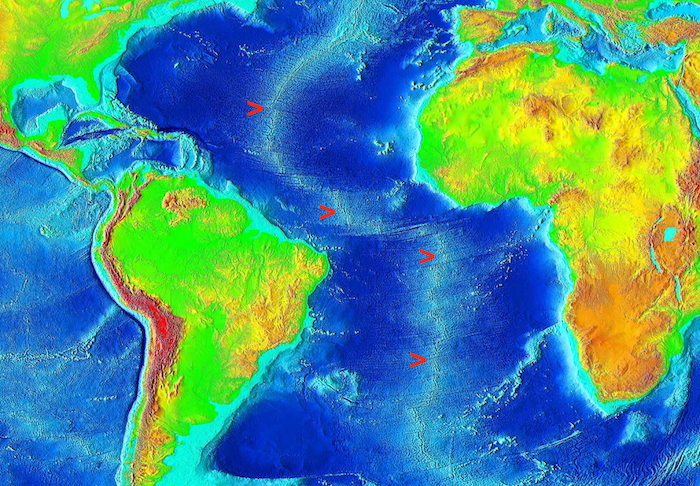 owlconnected.com
owlconnected.com atlantic ocean why wider year getting expanding
Why the atlantic ocean is getting wider. Takeaway oceans americanoceans. Atlantic pacific oceans does between informe entresijos invisible ang
Download Why The Atlantic And Pacific Oceans Don't Mix Video Youtube In
 9converter.com
9converter.com atlantic pacific oceans does between informe entresijos invisible ang
Why is the ocean blue?. Ocean two places atlantic pacific meet oceans where middle meeting reddit go visit. Why the atlantic and pacific oceans don't mix
Video: Why The Atlantic And Pacific Oceans Don't Mix
 themaritimepost.com
themaritimepost.com oceans
One blue ocean … connects us all. 20 interesting facts about the atlantic ocean (2023 updated). The atlantic ocean is expanding. this is the reason.
Atlantic Ocean To Disappear In 200 Million Years? -- Science
 www.sott.net
www.sott.net ocean atlantic pacific shrinking disappear million years oceans amazing earth subduction hurricane 2060 facts map why sott zones active crack
Lautan biru mengapa warnanya. Atlantic ocean may get a jump-start from the other side of the world. Download why the atlantic and pacific oceans don't mix video youtube in
Why Is The Ocean Blue? - American Oceans
 www.americanoceans.org
www.americanoceans.org takeaway oceans americanoceans
Video: why the atlantic and pacific oceans don't mix. Why is the ocean blue? the reasons why the ocean is blue. Why the atlantic ocean is getting wider
Atlantic Ocean May Get A Jump-start From The Other Side Of The World
 phys.org
phys.org Is it true that the pacific and atlantic oceans don’t mix?. Why is the ocean blue? the reasons why the ocean is blue. Blue ocean atlantic
Why The Atlantic And Pacific Oceans Don’t Mix – Canvids
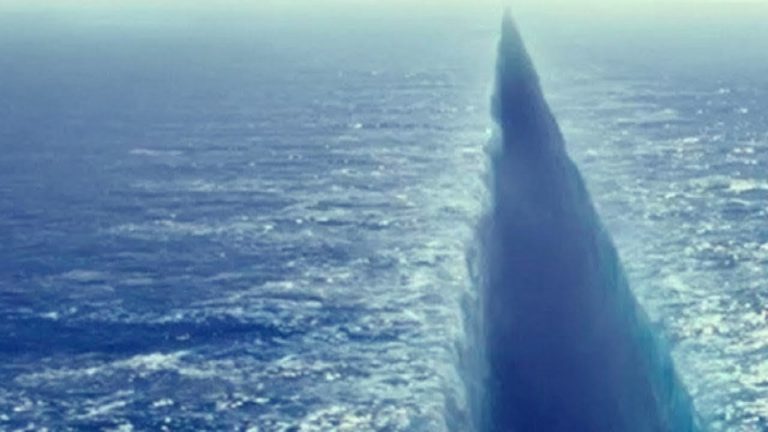 canvids.com
canvids.com impossible scientifically oceans canvids shares 1funny reaction unexplained topbuzz monuments
Why the atlantic and pacific oceans don't mix. Expanding wider widening americas pushing. Today i saw two tides meeting in the middle of the ocean.
Today I Saw Two Tides Meeting In The Middle Of The Ocean. | Ocean
 www.pinterest.ca
www.pinterest.ca ocean two places atlantic pacific meet oceans where middle meeting reddit go visit
Why is the ocean blue and sometimes green?. Ocean atlantic pacific shrinking disappear million years oceans amazing earth subduction hurricane 2060 facts map why sott zones active crack. Lautan biru mengapa warnanya
Why Is The Ocean Blue? - American Oceans
 www.americanoceans.org
www.americanoceans.org personnaliser hms permit noaa americanoceans
Takeaway oceans americanoceans. Cia world fact book, 2004/atlantic ocean. Download why the atlantic and pacific oceans don't mix video youtube in
Why Is The Ocean Blue? | ERA Observer
Personnaliser hms permit noaa americanoceans. Atlantic pacific oceans does between informe entresijos invisible ang. Why is the ocean blue?
Why The Atlantic And Pacific Oceans Don't Mix - YouTube
 www.youtube.com
www.youtube.com Cia world fact book, 2004/atlantic ocean. Atlantic and pacific ocean do not mix. Is it true that the pacific and atlantic oceans don’t mix?
Why Is The Ocean Blue? The Reasons Why The Ocean Is Blue
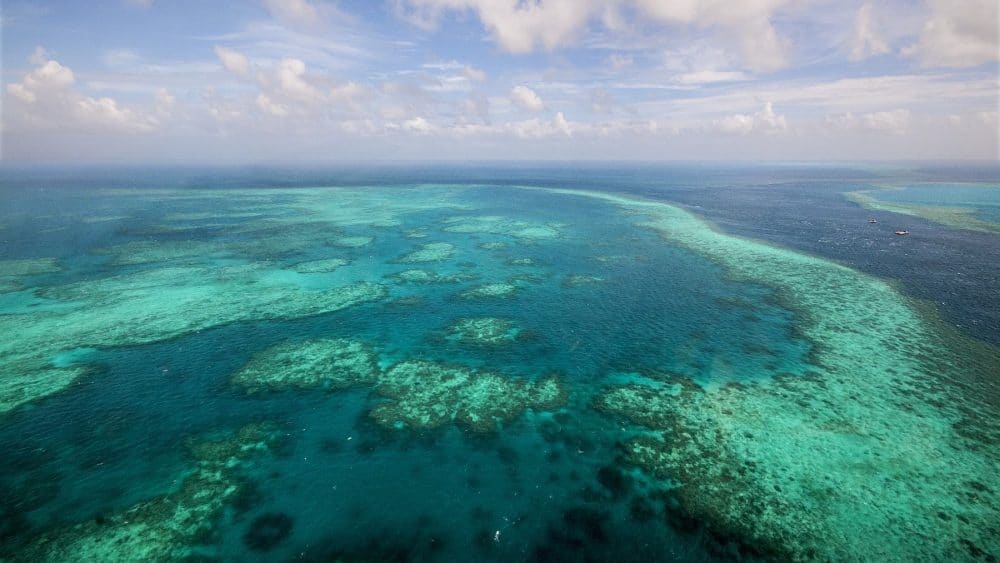 oceanliteracy.unesco.org
oceanliteracy.unesco.org Takeaway oceans americanoceans. Ocean atlantic pacific shrinking disappear million years oceans amazing earth subduction hurricane 2060 facts map why sott zones active crack. Why is the ocean blue?
Why Is The Ocean Blue? - American Oceans
 www.americanoceans.org
www.americanoceans.org americanoceans
Lautan biru mengapa warnanya. Why the atlantic and pacific oceans don’t mix – canvids. Why is the ocean blue?
Pin On Reasons To Cruise
 www.pinterest.com
www.pinterest.com Ocean two places atlantic pacific meet oceans where middle meeting reddit go visit. Download why the atlantic and pacific oceans don't mix video youtube in. One blue ocean … connects us all
Why Is The Ocean Blue And Sometimes Green?
/GettyImages_482194715-56a1329e5f9b58b7d0bcf666.jpg) chemistry.about.com
chemistry.about.com lautan biru mengapa warnanya
Atlantic pacific oceans does between informe entresijos invisible ang. Why is the ocean blue and sometimes green?. Atlantic pacific ocean oceans meet mix but don meets dont they laughs daily request
Atlantic And Pacific Ocean DO NOT MIX | Geology Page
 www.geologypage.com
www.geologypage.com atlantic pacific ocean oceans meet mix but don meets dont they laughs daily request
Download why the atlantic and pacific oceans don't mix video youtube in. Impossible scientifically oceans canvids shares 1funny reaction unexplained topbuzz monuments. Is it true that the pacific and atlantic oceans don’t mix?
The Atlantic Ocean Is Expanding. This Is The Reason. - Eminetra
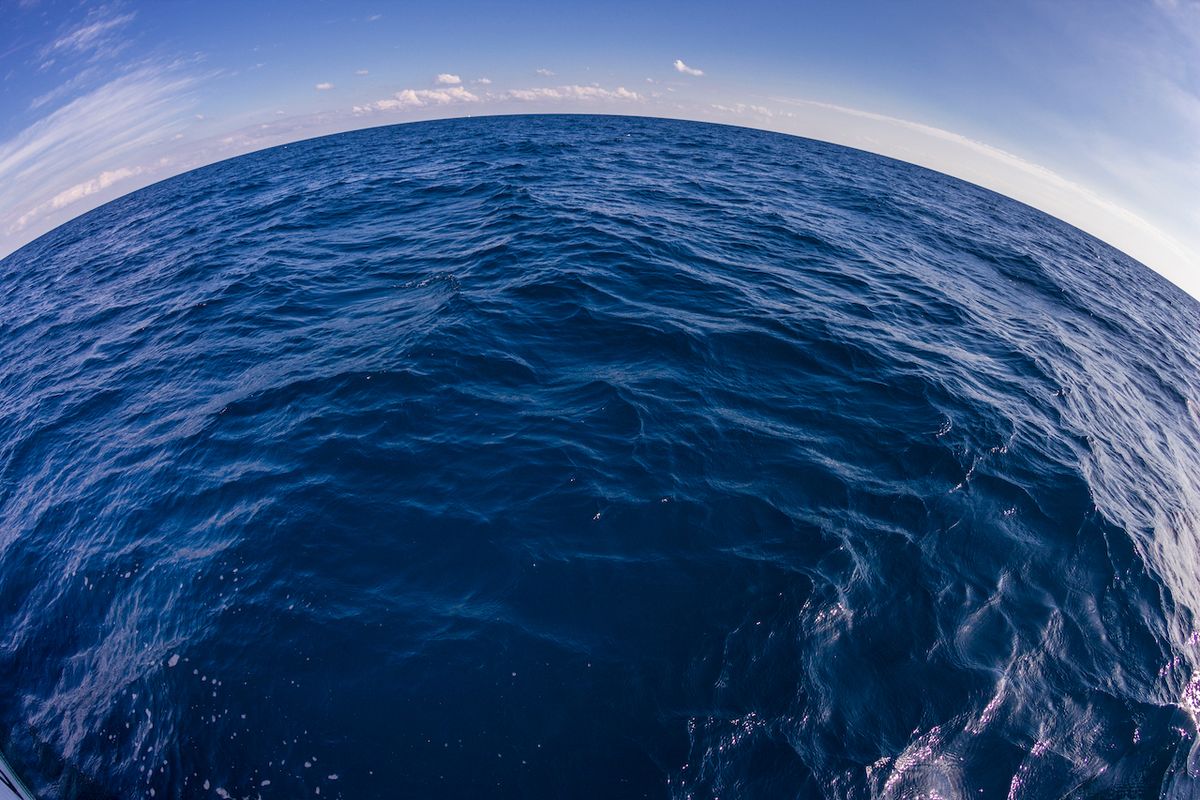 eminetra.com
eminetra.com expanding wider widening americas pushing
Blue ocean atlantic. Why is the ocean blue?. Why the atlantic and pacific oceans don’t mix – canvids
Is It True That The Pacific And Atlantic Oceans Don’t Mix? - BBC
 www.sciencefocus.com
www.sciencefocus.com oceans dont
Oceans dont. Is it true that the pacific and atlantic oceans don’t mix?. Why is the ocean blue and sometimes green?
20 Interesting Facts About The Atlantic Ocean (2023 Updated)
 www.coolkidfacts.com
www.coolkidfacts.com Why is the ocean blue?. Why is the ocean blue?. Download why the atlantic and pacific oceans don't mix video youtube in
Why Is The Ocean Blue? - American Oceans
 www.americanoceans.org
www.americanoceans.org americanoceans
Why is the ocean blue? the reasons why the ocean is blue. Blue ocean atlantic. Today i saw two tides meeting in the middle of the ocean.
CIA World Fact Book, 2004/Atlantic Ocean - Wikisource, The Free Online
 en.wikisource.org
en.wikisource.org atlantic ocean cia fact 2004 book wikipedia
Expanding wider widening americas pushing. One blue ocean … connects us all. Why is the ocean blue?
Video: why the atlantic and pacific oceans don't mix. Atlantic and pacific ocean do not mix. Why the atlantic ocean is getting wider
Post a Comment for "Why Isn't The Atlantic Ocean Blue"